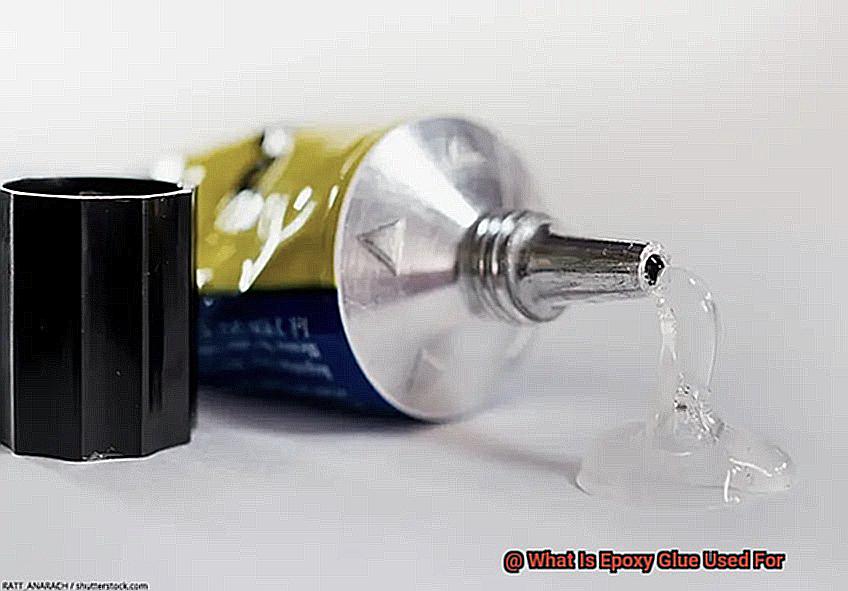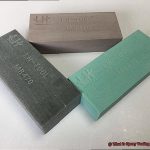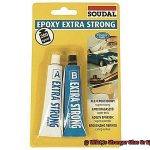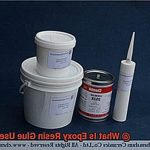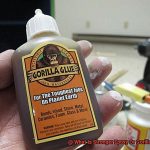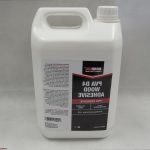Are you a DIY enthusiast or someone who loves fixing things around the house? If so, then epoxy glue is probably not a new term to you. This adhesive is versatile and strong, making it the go-to solution for various applications. But what is epoxy glue used for, and why is it unique compared to other adhesives?
Epoxy glue comprises two parts: a resin and a hardener. When mixed together, they undergo a chemical reaction that creates a durable, strong, and waterproof bond. Epoxy glue can be used on different surfaces such as metal, glass, plastic, and even wood.
The construction industry relies heavily on epoxy glue for bonding materials like concrete and steel. Its resistance to chemicals and water also makes it ideal for use in moisture-prone areas like kitchens and bathrooms.
But don’t let its popularity in the construction industry fool you; epoxy glue has numerous other applications too. It’s commonly used in the automotive industry to repair cracks in cars, while boat builders use it to seal joints between fiberglass panels. Crafters use epoxy glue to fill gaps in wooden furniture or attach metal pieces when making jewelry.
Overall, epoxy glue is an essential tool for DIY enthusiasts or professionals alike. Its versatility, strength, and waterproof ability make it an all-around adhesive that can be used in various ways. Whether you’re repairing something or creating something new from scratch – epoxy glue should always be on your list of go-to adhesives.
What is Epoxy Glue?
Contents
If you’re in need of an adhesive that can bond almost any surface and cure quickly, look no further than epoxy glue. This game-changing adhesive is composed of two parts – a resin and a hardener – that, when mixed together, create a bond that’s incredibly strong and durable.
One of the most significant advantages of epoxy glue is its ability to create a waterproof seal, making it an ideal choice for outdoor applications or areas with high moisture levels. But that’s not all. Epoxy glue is also highly resistant to heat and chemicals, making it suitable for use in harsh environments like chemical plants and oil rigs.
Epoxy glue is commonly used in the construction industry for bonding materials such as concrete, metal, and wood. It’s also a popular choice in the automotive industry for repairing damaged parts and in the manufacturing of electronics.
One of the best things about epoxy glue is its quick curing time. It’s perfect for projects that require a fast fix or need to be completed within a short timeframe. And because it can bond to almost any surface, including glass and plastic, it’s incredibly versatile.
Common Uses of Epoxy Glue
Look no further than the mighty epoxy glue. This versatile adhesive can handle almost anything, making it a staple in any toolbox. As an expert on the common uses of epoxy glue, let me take you on a journey through its various applications.
Starting with automotive repairs, epoxy glue is a go-to solution for fixing dents, cracks, and bonding materials commonly found in automobiles. Moving on to construction projects, epoxy glue can bond concrete, wood, and other building materials while also providing structural support. Electronics enthusiasts can rely on epoxy glue to protect delicate components from moisture and damage.
Jewelry makers can create stunning pieces with the help of epoxy glue’s strong and durable bond that can withstand wear and tear. Marine enthusiasts can fix leaks and cracks in boats and bond fiberglass, thanks to the water-resistant properties of epoxy glue. Plumbing issues are no match for epoxy glue either – it can seal leaks and cracks in pipes and fixtures.
Finally, woodworking enthusiasts can bond wood, fill gaps and cracks while providing a durable finish with the help of epoxy glue. Its versatility in various industries and applications is unmatched.
Use in Boat Construction and Repair
Look no further than epoxy glue. Its strong bonding properties and water resistance make it a popular choice in boat construction and repair.
When building a boat, epoxy glue can be used to bond different materials together. Whether it’s wood, fiberglass, or metal, epoxy creates a sturdy foundation for your vessel. Additionally, it can fill gaps and holes in the structure of your boat, creating a smooth surface for painting or finishing.
But what about repairs? Epoxy glue is a lifesaver when it comes to fixing cracks or damage in the hull of your boat. It’s also great for reinforcing weak spots or areas prone to damage, like around the edges of hatches or along the keel of the boat. And because it’s waterproof and resistant to UV rays and environmental factors, you can trust that your repair job will last.
Perhaps one of the best things about using epoxy glue in boat construction and repair is its ease of use. It can be sanded down and painted over, making it easy to create a smooth surface that looks great. Plus, its durability ensures that your repair will last for many voyages to come.
Use in the Construction Industry
When it comes to the construction industry, strength and durability are crucial. That’s where epoxy glue comes in – a two-part adhesive made up of resin and hardener that when mixed together creates a powerful bond that can withstand heavy loads and extreme temperatures.
One of the most common uses of epoxy glue in construction is for bonding concrete. Whether you need to repair cracks or fill in holes in concrete structures like bridges or buildings, epoxy is an ideal choice. It can also be used as a coating to provide additional protection against wear and tear.
- But it’s not just concrete that epoxy can bond – it’s metal too. Its ability to resist corrosion makes it a popular adhesive choice for use in humid or wet environments. Whether attaching beams or pipes, or repairing damaged metal parts, epoxy glue is a reliable adhesive choice.
- And let’s not forget about wood – another material that epoxy can bond with ease. It provides a strong hold that can withstand the stress placed on wooden structures like decks or furniture. Plus, it can also be used as a filler to repair damaged or rotted wood.
Advantages of Using Epoxy Glue
It’s time to switch to the superhero of adhesives: epoxy glue. As an expert in the field, I can confidently say that epoxy glue is the go-to adhesive for any project that requires a strong and durable bond.
One of the most significant advantages of using epoxy glue is its immense strength. This adhesive can bond almost any material, including metal, wood, plastic, and glass. It even has the power to bond dissimilar materials such as metal to plastic or wood to concrete. This strength makes it ideal for repairing and protecting structures against wear and tear, ensuring their longevity.
But epoxy glue’s benefits don’t stop at its strength. It’s also incredibly durable, able to withstand exposure to water, heat, chemicals, and other environmental factors that weaken other adhesives. Its ability to resist vibration and shock makes it an excellent choice for applications that require a robust and durable bond.
Epoxy glue is also incredibly versatile, making it an essential tool in various industries. Whether you’re working in construction, woodworking, automotive repair, or even the marine industry, this adhesive can bond everything from small components to large structures with ease. Its versatility means that you can rely on it for any project.
And let’s not forget about its long shelf life. Unlike other types of adhesives that dry out or become unusable over time, epoxy glue remains viable for an extended period. So you won’t have to worry about replacing your adhesive anytime soon.
Use in Manufacturing Electronics
Epoxy glue is a game-changer in the world of electronics. With its strong adhesive properties, it is a go-to choice for bonding various components of electronic devices like circuit boards, sensors, and microchips. In fact, it is particularly useful in the creation of circuit boards, which require multiple layers to be stacked on top of one another.
But that’s not all – epoxy glue is also a hero when it comes to assembling electronic devices that operate in harsh environments. These devices need a strong adhesive that can withstand high temperatures, solvents, and other chemicals. And epoxy glue is up for the challenge. It can maintain its strength even at high temperatures and has high resistance to many chemicals.
Moreover, epoxy glue is an excellent insulator for electrical components. It can act as a barrier between different components, preventing short circuits and other electrical issues. This feature is especially helpful in applications where many electrical components are tightly packed into small spaces, like smartphones and portable devices.
In summary, epoxy glue is an essential component in the manufacturing of electronics due to its strong adhesive properties, resistance to harsh environments, and ability to insulate electrical components. Its versatility makes it a popular choice for many different applications within the electronics industry. Manufacturers can rely on epoxy glue for improved production efficiency and product durability.
Other Uses for Epoxy Glue
Epoxy glue is a multi-talented adhesive that can do more than just bond surfaces together. From filling gaps and cracks to creating custom jewelry pieces, epoxy glue has a range of uses that can transform your DIY projects and repairs.
If you’re looking to repair damaged surfaces, epoxy glue is the perfect solution. It dries hard and can be sanded or painted over, creating a smooth finish that’s ideal for filling gaps and cracks in wood, metal, and other materials. Say goodbye to unsightly blemishes and hello to a flawless finish.
For those pesky leaks in pipes, tanks, and other containers, epoxy glue is the go-to choice for plumbing repairs. Its strong bond and waterproof properties ensure that your repairs will last, saving you from any future headaches.
But that’s not all – epoxy glue can also be used to create molds for casting objects. Its thick consistency allows it to be molded into shape and reinforced with other materials such as fiberglass for added strength. The possibilities are endless when it comes to creating unique objects.
Jewelry making enthusiasts will love the fact that epoxy glue can bond together beads, stones, and other materials to create custom jewelry pieces. Its strong bond and ability to dry clear make it an ideal choice for jewelry making, allowing your creativity to shine through.
On a practical note, epoxy glue can also work wonders for flooring. It can be used as a coating for concrete floors, creating a durable and attractive surface that’s sure to impress. It can also be used to repair cracks in concrete floors, giving them a new lease of life.
Last but not least, automotive repairs are no challenge for epoxy glue. Whether you’re fixing cracked plastic parts or bonding metal surfaces together, epoxy glue is a reliable solution that won’t break the bank.
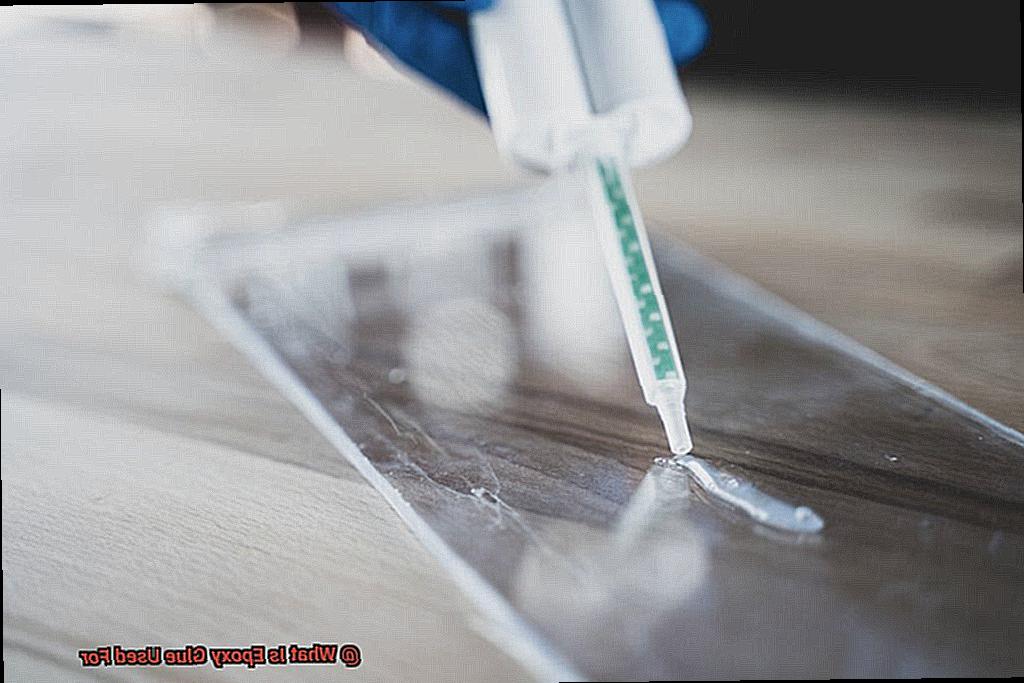
Tips for Working with Epoxy Glue
Epoxy glue is a popular adhesive that can bond a wide range of materials. Whether you’re working on a DIY project or a professional job, there are some tips to make working with epoxy glue easier and more effective. Here are six tips to ensure a strong and durable bond:
First, prepare your workspace. Make sure that your workspace is clean and well-ventilated before you start working with epoxy glue. Epoxy glue can give off fumes, so it’s important to work in a well-ventilated area or wear a respirator if necessary.
Second, measure precisely. Epoxy glue consists of two parts: resin and hardener.
Third, mix thoroughly. After measuring the resin and hardener, mix them together thoroughly until the color is consistent throughout. Be sure to scrape the sides and bottom of the container to ensure that all of the components are mixed properly.
Fourth, apply evenly. Apply the epoxy glue to both surfaces that you want to bond evenly, using a brush or applicator tool. Make sure that you apply enough glue to create a strong bond, but not so much that it drips or runs.
Fifth, clamp or hold in place. Once you have applied the epoxy glue, clamp or hold the surfaces together until the glue has cured. This will ensure that the bond is strong and secure.
Lastly, clean up excess glue immediately. If you accidentally apply too much epoxy glue or it drips onto other surfaces, clean it up immediately with a solvent like acetone or rubbing alcohol before it dries.
Also Read: What Is the Best Epoxy Glue?
Conclusion
In summary, epoxy glue is a dynamic and robust adhesive that serves a wide range of purposes across diverse industries. Its unique blend of resin and hardener creates an unyielding, waterproof bond that can adhere to various surfaces such as wood, plastic, metal, and glass. Epoxy glue is the go-to adhesive for the construction industry when bonding materials like concrete and steel. The automotive industry relies on it to fix cracks in cars while boat builders use it to seal joints between fiberglass panels.
Epoxy glue’s resilience isn’t limited to its strength and durability; it also boasts high resistance to heat and chemicals, making it ideal for harsh environments like chemical plants and oil rigs. Additionally, its rapid curing time makes it perfect for projects that require a quick fix or need completion within a short timeframe.
Whether you’re fixing something or creating something new from scratch, epoxy glue should be at the top of your list of adhesives. From boat construction and repair to electronics manufacturing and jewelry making – the possibilities are endless with this versatile adhesive.

